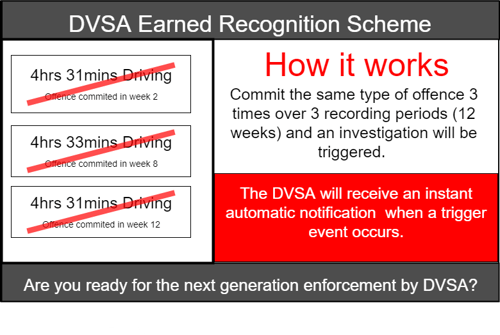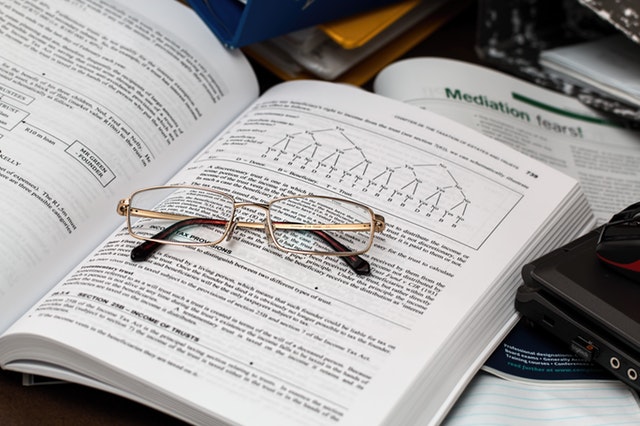Well, after that pleasant and informative interlude from Nathalie earlier in the week, order is promptly restored.
So down to the brassiest of tacks.
Handily, the Traffic Commissioners of Great Britain have issued a reminder to drivers regarding drivers' card rules.
Handy in more ways than one - on the one hand, it gives drivers reference to their responsibilities without having to enquire with a third party (or, God forbid, the Govt. herself) to find out what's what.
On the other, it gives third parties (like me) something official to show drivers who make said enquiries.
In other words: the TC has our backs.
And not a moment too soon, either. Confusion in the industry is reaching boiling point. And it's straightforward, clear-cut missives such as this that allow us a bit of respite from the onslaught.
The topic of driver card responsibilities is a deceptively complex one. While the rules seem simple on the face of it, you wouldn't believe how many drivers are still unsure on how many days' grace you get after losing a card, for example, or even how often you have to have your card on you.
So, to the matter at hand. Here are the 11 responsibilities drivers have towards their cards, as explained by the TC.
You must:
1. 'use a driver card to digitally record all your work and driving under EC rules, this includes recording your driver walk round check as other work, at the beginning of a shift'
Fair enough, you might be thinking, but what about mixed driving? If I've just finished driving an analogue wagon, and switch to a digital in the same shift, do I have to do manual entries to cover the time spent in the analogue?
The answer is no. You don't need to do double-up, in fact, doing so could land you in trouble. If there is any discrepancy between the information provided on the chart, and that provided in the manual entry, it could be deemed falsifying documents.
2. 'make sure the recording equipment and driver card are functioning correctly and use them properly'
A pretty basic one. But I know drivers who have been under the impression that whether or not the gear actually works is down to their TM or operator.
But it ain't so. The buck stops with the driver. So, if you start up the engine at the beginning of your shift and notice an error message on the tacho screen, and just crack on without telling the boss because that's their job, then you're courting bother, brother.
3. 'only hold one card - the only exception to this is during the month before your card is about to expire, when you may also hold a replacement card'
That last bit's a point of contention among some drivers. I know drivers who are wary about carrying two cards under any circumstances, because of rumours that DVSA agents crack down on it like it's no one's business. I mean, if you're carrying two cards on you, an agent must suspect your motives are nefarious.
But, the legal fact of it is: if your card's due to run out in under a month, you can carry its replacement, and the DVSA won't penalise you. If they do, be on guard; they may not be a real agent.
(One giveaway: they call themselves VOSA. The more inept ones, anyway).
4. 'allow your employer to download data from your card, ideally on a weekly basis'
I know, 'allow' is a funny word for them to use. I mean, between the dash runs and the long hauls and waiting to be tipped in some quarry at 5pm, you're supposed to make your card available to your manager. If you fail to do this, you could say: 'Well, I don't organise my shift. It's up to the TM or freight forwarder'.
But that won't quite cut it, says the TC. Basically, it's up to you to make sure your TM has your card to download on a regular basis. For most, that means popping into the office just before your shift starts (or when you return to base, if you finish during office hours).
Don't get me wrong - your employer also has a legal obligation. They need to make sure all driver cards are downloaded every 28 days. But if the DVSA come inspectin', and say 'this driver hasn't downloaded his card in 45 days', the employer could legitimately fire back: 'He had every opportunity to download his card, and was reminded on several occasions'. If they have evidence that you were informed, and that you were physically able to hand your card over during that time, then the DVSA's focus switches to you, the driver.
5. 'apply for a replacement to lost, stolen, damaged or malfunctioning cards within 7 days, and take printouts at the start and end of each driving day before your replacement card arrives'
Aye, 7 days it is. And 7 days is fair, all considered. I get it: the process of applying for a new one sounds like it'll take a colossal amount of time. After all, it requires you to download, print and fill in a form.
In fact, finding the bloody form is hard enough. But I've saved you some shoe leather. You can get it directly through this link:
Getting a Replacement Driver Card
Some freight firms have the paper forms in stock. We do, funnily enough. If you're very lucky, your employer will, too. But it's unlikely.
Keep in mind, too, that you've got to inform the DVLA (yes, the DVLA) immediately if your card is lost, stolen, or made otherwise unusable. The act of informing them and the act of applying for a new one are entirely separate.
6. 'not use a card which does not bare your own details'
Yeah. Don't use your mate's or your aunt's. Or one that displays your name as 'ROADWARRIOR'. Let's move on.
7. 'not use or be in possession of a forged or altered card'
Yeah. Again, don't go all Catch Me If You Can on your driver card.
8. 'not record any false data on your card or any recording equipment'
Nothing makes a DVSA agent lick their lips quite so intensely as when they carry out a routine roadside check on an HGV, and discover a spot of fraud.
Why? Because more often than not, fraud's considered too serious for a mere fine. If you get caught doing it, you could be looking at a spell behind bars.
The best advice you can get on this matter is, just, don't do it.
9. 'not make a false, forged or altered statement to obtain a card'
Ditto.
10. 'not suppress or destroy any data recorded on your card or any recording equipment'
That's right. In fact, it will be even harder to get away with this once Earned Recognition comes along. If you're running for a company that is less than exemplary, you'll be subjected to roadside stoppages like it's going out of fashion. Discrepancies, inconsistencies, and fantastical data will grab the attention of the Eye of Sauron, I mean, of the Agency. You can count on that.

Methods of suppressing data include using tacho manipulation devices, like magnets. Recent figures suggest this type of unfair play is more commonly found in foreign trucks entering the UK, than in domestic trucks. There was a story last year, in fact, of a driver who'd driven all the way from Germany to Nottingham with a distorted tacho.
11. 'carry your card when working and produce it for DVSA officers or the police when asked to do so, even if it has not been used'
The legal stance is: you must have your card on you from the moment your shift starts. Best practice, however, is to have it on you at all times. As you would your drivers' licence. Or your Blockbuster membership card. And usually, if you ask someone who knows what's what, that's exactly what they'll tell you. Keep it on your person wherever you are - it makes things much simpler.
And that's all she wrote. You can get the official release here.
Anyway, as I've said, this area generates an unusual amount of questions. We've got a fella here who does free webinars on the topic. Got a query? Get it answered. His name's Chris Allen, and he's an expert in these things.
You can find the next scheduled dates below:




